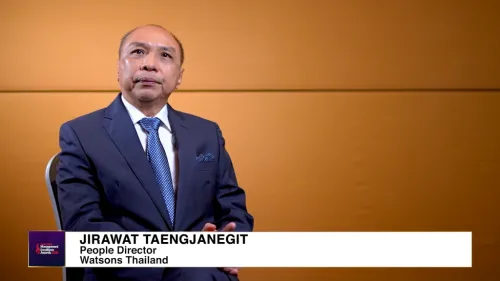Sanitation workforce faces unequal job conditions
There are disparities in sanitation industry employment and solutions for equitable job conditions.
Despite representing a small fraction of the workforce, the sanitation workforce plays an essential role in maintaining public health and environmental standards, yet they face significant disparities in job security, income distribution, and access to social protections compared to other sectors.
Carlos Carrión-Crespo, Sectoral Specialist for Public Service, Utilities, and Telecommunications at the International Labour Organisation (ILO), pointed out that the occupational distribution within the sanitation sector varies significantly, encompassing solid waste management, cleaning services, and faecal sludge cleaning, each with its demographic nuances.
For instance, solid waste management tends to be more male-dominated, while certain cleaning roles, such as in schools or the railway industry in India, are predominantly filled by women.
He said that these roles not only differ demographically but also in terms of income distribution, which is further influenced by the workers' educational background and ethnic identity.
“The distribution is different in Pakistan, it's mostly the Christians, but on the whole, they're mostly employers; their employees mostly come from underrepresented groups in the employment market,” he explained.
Carrión-Crespo emphasised the need for greater visibility and formal recognition of these workers through union organisation and collective bargaining to address income disparities and improve working conditions.
Addressing the high level of informality in sanitation work, especially in low-income countries, Carrión-Crespo referenced ILO Recommendation 204, which advocates for the transition from informal to formal employment.
He said that this recommendation was collaboratively drafted by governments, unions, and employers worldwide, recognizing the myriad challenges faced by informal workers. It proposes measures such as collective bargaining and social protection scheme registration to ensure workers gain access to health benefits, pension benefits, and other forms of social protection.
Carrión-Crespo also discussed the particular challenges of enhancing job security and conditions in low-income countries. Public sector employees in these regions often lack the job security enjoyed by their counterparts in higher-income countries.
He suggested that empowering workers to organise in representative organisations could level the playing field with employers, allowing for the establishment of fair working conditions and job security.
The ILO's strategic compliance initiatives, such as spot checks and voluntary compliance mechanisms, were highlighted as methods to improve labour inspection and enforcement of job security, particularly in vital industries like Bangladesh's textile sector.
“Basically, recognition and organising mechanisms need to be put in place in order to address the income distribution among the different groups that are composed of employment in sanitation industries,” he said.



















 Advertise
Advertise








Commentary
Ingredients take centre stage for Asian consumers across food and beverage purchases
Human Sparsity Blockchain: A citizen-validated ledger for digital finance supervision
Breaking the myths around turbomachinery downtime in APAC